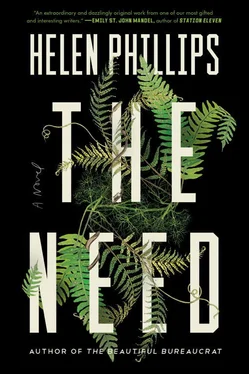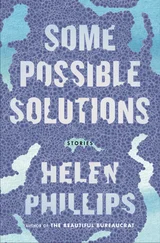and stood before him.
And the one woman said,
‘O my lord, I and this woman dwell in one house;
and I was delivered of a child with her in the house.
And it came to pass the third day after that I was delivered,
that this woman was delivered also:
and we were together; there was no stranger with us in the house,
save we two in the house.
And this woman’s child died in the night; because she overlaid it.
And she arose at midnight,
and took my son from beside me, while thine handmaid slept,
and laid it in her bosom,
and laid her dead child in my bosom.
And when I rose in the morning to give my child suck,
behold, it was dead:
but when I had considered it in the morning,
behold, it was not my son, which I did bear.’
And the other woman said,
‘Nay; but the living is my son, and the dead is thy son.’
And this said,
‘No; but the dead is thy son, and the living is my son.’
Thus they spake before the king. Then said the king,
‘The one saith, This is my son that liveth, and thy son is the dead:
and the other saith, Nay; but thy son is the dead, and my son is the living.’
And the king said, ‘Bring me a sword.’
And they brought a sword before the king.
And the king said, ‘Divide the living child in two,
and give half to the one,
and half to the other.’
Then spake the woman whose the living child was unto the king,
for her bowels yearned upon her son,
and she said,
‘O my lord, give her the living child, and in no wise slay it.’
But the other said,
‘Let it be neither mine nor thine, but divide it.’
Then the king answered and said,
‘Give her the living child, and in no wise slay it:
she is the mother thereof.’”
The two women and their single shadow left the palace on a street paved with gold. They walked until the gold turned to dirt, and they kept walking. The road was long and straight. No sound but the sound of pebbles shifting beneath their feet. Sometimes one would carry the baby. Sometimes the other would carry the baby. They did not have water or anything else. They walked. They were two women with one live child and one ghost child. They were two women with four children. They were three women with six children, nine women with eighteen children, fifty women with a hundred children, five hundred women with a thousand children, their single shadow before them.
Moll closed the Bible and placed it on the windowsill beside her, between the Coca-Cola bottle and the Altoids tin.
“That should be destroyed,” Molly said from the bed, her mouth sour from sickness. Sadness rippled through her at the thought of obliterating the Bible. But presumably there was, somewhere, a world containing many thousands of copies of it.
“So,” Moll said, “you agree with her.”
“Her?”
“The bomber.”
“What?”
“She, too, wanted to destroy the Bible.”
Molly struggled to sit up in bed. She felt weak, dehydrated, uncertain of her abilities.
“Can you,” Moll continued, “imagine any circumstance under which you could do what she did?”
“No!” Molly said.
She looked at Moll and Moll looked at her.
“Only,” Molly admitted, “if. The children.”
It was true, she knew it, she could feel it solid within her, she bore inside herself all the dark possibilities: she would hide and lie and steal and starve and plot and be merciless and insinuate herself into someone else’s life. She would kill and she would die. If.
“Where is she now?” Molly said. “The one in this world, the one who… didn’t.” She pictured her crouching in every shadow, lingering behind every tree.
“Who knows,” Moll said.
And Molly saw her: running through a parking lot, crying at a bus stop, drinking desperately from a water fountain.
“The thing about that woman,” Moll said, very quietly. “The bomber. She.” Moll paused. “She really looked a lot like us.”
“Are you okay?”
“Well, I’m dizzy.”
Dizziness was one word for it: this sense of increasing distance from the known facts of her own life.
Billions of Mollies in billions of universes. Billions of Davids. All those other Vivs and Bens, their voices echoing through infinity, their eyes multiplied across the void like stars.
“Me too.”
Molly considered the Molly before her: a slight woman perched on a windowsill. This person was her nemesis, yet the sight of Moll inspired only a strange sense of calm.
She found herself thinking of the Pit, vaguely sodden at the bottom, its innocuous smell of dust and water.
“E pluribus unum,” Moll said.
“What?”
Moll picked up the penny off the windowsill and carried it to the bed and dropped it into Molly’s palm. It was surprisingly warm, almost searing, and Molly understood that it burned with its otherworldliness, until she remembered that the radiator beneath the windowsill had turned on for the evening.
Moll returned to the windowsill and closed her eyes.
Molly, too, closed her eyes, wondering what Moll saw on the inside of her lids.
Two parents form a circle around two small naked children.
“The umbilical cord,” Moll said, “runs both directions. The mother keeps the children alive and the children keep the mother alive.”
Molly opened her eyes. Moll’s were still closed.
“Whenever I’m playing with them,” Moll said, “I’m grieving them.”
Then Moll opened her eyes and made a gesture with her hand, a sort of flicking away of the words.
Molly knew she would never forget that hopeless gesture of Moll’s hand.
Moll, who belonged nowhere.
Molly, who did now sometimes grieve them when she was playing with them, but not always.
On the windowsill, the Coca-Cola bottle glimmered with its own light, and the toy soldier fluttered its monkey tail.
“Come here,” Molly said, but Moll stayed on the windowsill.
“It’s always going to be a duel,” Moll said.
Or maybe she said, “It’s always going to be a dual.”
At last Moll came down off the windowsill. Stepped across the room to Molly and lay down beside her on the bed and took her hand.
“My palm is sweaty.”
“Mine too.”
“Well, yes.”
Moll placed her other hand on Molly’s forehead. Again, the perfect steadiness.
“Fever’s broken.”
Molly knew that it was, but she did not want Moll to remove her hand, and when Moll did, she suffered a minor sensation of bereavement.
They lay side by side, holding hands.
And then Moll was on top of her, Moll’s face so close to her face. Their identical arms met, elbow to elbow. There was a moment when Molly could have thrown her off, could have asked indignantly what the hell Moll was doing, but that moment passed. She matched her shoulders to her shoulders. Her feet to her feet. Her thighs to her thighs. Her forehead to her forehead. Lungs to lungs, womb to womb, teeth to teeth.
She pressed down on her as though trying to press past her skin, into her blood, her muscles, her bones.
The sublime pressure.
It felt good, she had to admit, so good, until all at once it became too much, far too much to bear.
 EPILOGUE
EPILOGUE 

She woke, new.
Читать дальше

 EPILOGUE
EPILOGUE 




![Unknown - [Carly Phillips] The Bachelor (The Chandler Brothe(Bookos.org) (1)](/books/174132/unknown-carly-phillips-the-bachelor-the-chandle-thumb.webp)






